Understanding the Dietary Needs of Huskies
Huskies are known for their high energy levels and active lifestyles, which means they require a diet with the necessary fuel to keep them going. Understanding the dietary needs of Huskies is crucial in ensuring their overall health and well-being. As a responsible Husky owner, choosing the best dog food for Huskies that caters to their needs is essential.
As active dogs, huskies need a diet high in protein and other essential elements. They have a higher metabolic rate than other breeds, meaning they need more calories to sustain their energy levels. A balanced diet for a Husky should consist of high-quality protein, healthy fats, carbohydrates, and various vitamins and minerals.
How to select the best Dog Food for Huskies
When choosing the best dog food for Huskies, there are several factors to consider. First and foremost, you should look for the best dog food specifically formulated for active breeds like Huskies. These formulas are designed to meet the higher energy requirements of these energetic dogs.
The quality of the ingredients is a crucial additional consideration to take into account. Find the best dog food by looking for sources of high-quality protein like chicken, beef, or fish. Refrain from feeding your dog food that has fillers, artificial preservatives, or byproducts. . It is also essential to consider your Husky’s age, size, and any specific dietary requirements they may have.
Different Types of Dog Food for Huskies
Three main types of dog food are available for Huskies: dry dog food, wet dog food, and raw dog food. Each class has advantages and disadvantages, and choosing the one that suits your Husky’s needs and preferences is essential.
The most popular and practical choice is dry dog food. It is easy to store, has a long shelf life, and is generally more affordable than other types of dog food. On the other hand, wet dog food is more palatable and can be a good option for Huskies who are picky eaters or have dental issues. More so, there are ways through which you can save and preserve your wet food for a longer period that is suitable for eating. Raw dog food is sometimes referred to as a raw or BARF diet (Biologically Appropriate Raw Food), is a controversial option involving feeding your Husky raw meat, bones, and vegetables.
How vital is Protein in a Husky’s Diet
Protein is an essential nutrient for Huskies as it gives the raw materials for wholesome muscles, tissues, and organs. Huskies are highly active dogs requiring a higher protein intake than less active breeds. A diet rich in high-quality protein sources, such as chicken, beef, or fish, will help support their muscle development and repair.
When choosing dog food for your Husky, ensure the protein source is listed as the first ingredient. Look for specific protein sources, such as deboned chicken or salmon, as these are more nutritious and easier for your Husky to digest. Avoid dog food that contains meat by-products or fillers, as these are low-quality protein sources that offer little nutritional value.
Essential Nutrients for Huskies
In addition to protein, there are several other essential nutrients that Huskies need in their diet. These include healthy fats, carbohydrates, vitamins, and minerals. Healthy fats, such as omega-3 and omega-6 fatty acids, are essential for maintaining healthy skin and coat and supporting brain function. Carbohydrates provide energy for your Husky and should come from whole grains, fruits, and vegetables.
Vitamins and minerals are also crucial for your Husky’s overall health. Look for dog food that contains a variety of fruits and vegetables, as these are natural sources of essential vitamins and minerals. Some important vitamins and minerals to look for include vitamins A, C, E, calcium, and zinc.
Common Ingredients to Avoid in Husky Dog Food
When choosing dog food for your Husky, avoiding certain ingredients that may harm their health is essential. Some common elements to avoid include artificial preservatives, artificial colors, and artificial flavors. These additives can cause digestive issues, allergies, or other health problems.
It is also important to avoid dog food that contains fillers, such as corn, wheat, and soy. These ingredients offer little nutritional value and can be difficult for your Husky to digest. Lastly, avoid dog food that contains meat by-products, as these are low-quality protein sources that may have unwanted additives.
Feeding Guidelines for Huskies
Feeding your Husky the right amount of food is crucial in maintaining their overall health and weight. The food your Husky needs will depend on age, size, activity level, and overall health. Following the feeding guidelines provided by the dog food manufacturer and adjusting accordingly based on your Husky’s individual needs is essential.
Adult Huskies should generally be fed twice a day, while puppies may require more frequent meals. Measure the appropriate amount of dog food based on your Husky’s weight and divide it into two or more meals. Avoid free-feeding, as this can lead to overeating and weight gain.
Popular Brands of Dog Food for Huskies
Several popular dog food brands are formulated explicitly for Huskies and other active breeds. These brands offer a range of options to cater to different dietary needs and preferences. Some popular brands include Blue Buffalo Wilderness, Taste of the Wild, Wellness CORE, and Orijen.
When choosing a brand of dog food for your Husky, it is essential to read the labels and ingredients list carefully. Look for brands that use high-quality protein sources, avoid fillers and artificial additives, and offer a balanced blend of nutrients. It is also a good idea to consult your veterinarian for recommendations based on your Husky’s needs.
Homemade Dog Food Recipes for Huskies
If you prefer to prepare your dog the best dog food for Huskies, several homemade recipes can provide a balanced and nutritious diet. Homemade dog food gives you complete control over the ingredients and can be a good option for Huskies with specific dietary requirements or allergies.
Some homemade dog food recipes for Huskies include a blend of high-quality protein sources, such as chicken or beef, with various vegetables and grains. It is essential to have a source of healthy fats, such as fish or coconut, to ensure your Husky gets the nutrients for a healthy coat and skin. However, consulting with a veterinarian or canine nutritionist is essential to ensure the homemade diet meets all of your Husky’s nutritional needs.
Supplementing Your Husky’s Diet with Treats
Treats are essential to your Husky’s diet, as they can be used for training, rewards, or simply as a tasty snack. However, it is necessary to choose healthy treats made from high-quality ingredients. Avoid treats that contain artificial additives, fillers, or excessive amounts of sugar or salt.
Several healthy dog treat options are available for Huskies, including freeze-dried meat treats, dental chews, and natural dog biscuits. These treats provide a source of protein and other essential nutrients while satisfying your Husky’s taste buds. It is important to feed treats in moderation and consider them as part of your Husky’s overall daily calorie intake.
Transitioning to a New Dog Food for Huskies
If you decide to switch your Husky’s dog food, it is vital to do so gradually to avoid digestive upset. Sudden changes in diet can cause diarrhea, vomiting, or other gastrointestinal issues. To transition to a new dog food, start by mixing a small amount of the fresh food with the old food and gradually increase the amount throughout one to two weeks.
During the transition period, monitor your Husky’s stool and overall health. If you notice any signs of digestive upset or discomfort, slow the transition process or consult your veterinarian. Remember, every Husky is unique, and it may take some time to find the best dog food that suits their needs.
Consulting a Veterinarian for Dietary Advice
While this guide provides essential information on choosing the best dog food for Huskies, consulting with a veterinarian for personalized pet dietary advice is always a good idea. A veterinarian can assess your Husky’s individual needs, recommend specific brands or formulas, and provide guidance on portion sizes and feeding schedules. You can always check vets that are also online if making it to physical locations might be a challenge. here are some tips on choosing the best online vets for pets.
Your veterinarian can also help identify any underlying health conditions or allergies requiring a specialized diet. They can perform blood tests, allergy tests, or other diagnostic procedures to ensure your Husky is getting the necessary nutrients and is in good overall health.
Conclusion
Choosing the best dog food for your Husky is crucial in ensuring their overall health, energy levels, and well-being. Understanding their dietary needs, considering protein content and ingredient quality, and following feeding guidelines are essential in providing your Husky with a balanced and nutritious diet.
Whether you choose a commercial dog food brand or prefer to prepare homemade meals, it is vital to prioritize your Husky’s nutritional needs and consult a veterinarian for personalized advice. By fueling your Husky’s energy with the right dog food, you can help them live a happy, healthy, and active life.
CTA: Remember, your Husky’s nutrition is crucial to their health. Please consult a veterinarian and choose the best dog food for huskies that meets your needs. Your Husky will thank you with boundless energy and a wagging tail.
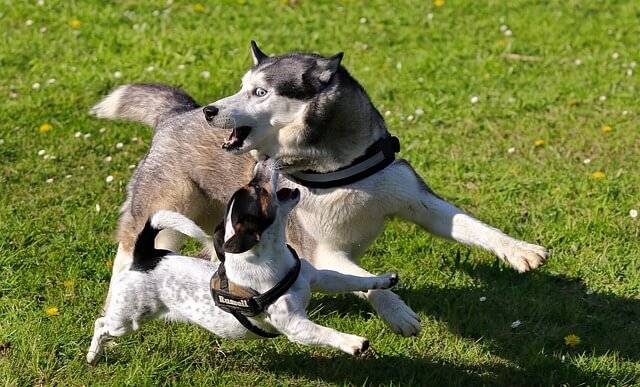
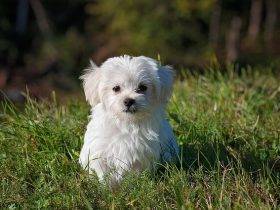
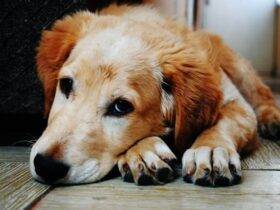

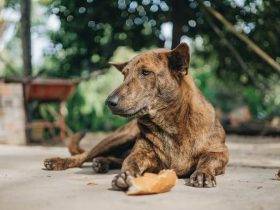
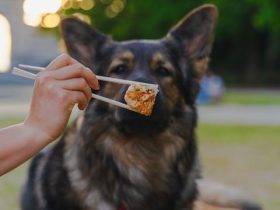
Leave a Reply